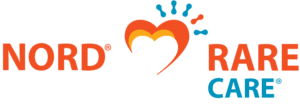Última actualización:
May 15, 2009
Años publicados: 1986, 1993, 2004, 2009
Bejel is an infectious disease that is rare in the United States but common in certain parts of the world. The infection is very similar to syphilis but is not sexually transmitted. Most frequently, transmission is by means of non-sexual skin contact or by common use of eating and drinking utensils. The organism that causes bejel belongs to the same family as the bacterium that causes syphilis, pinta and yaws and is known as treponema. Treponemas are spiral-shaped bacteria (spirochetes). Also known as endemic syphilis, bejel is characterized by lesions of the skin and bones that begin in the mouth and progress in gradual stages. The late stages are the most severe.
Bejel is very common in dry, hot climates especially in the countries of the eastern Mediterranean region and in Saharan West Africa.
At the outset, children with bejel have patchy, slimy, ulcerations (lesions) on the mucous membranes, particularly in or near the mouth. Later, blisters appear on the back, arms, and legs. Further disease progression is indicated by infections of the bones, especially those of the legs. In these later stages, soft, gummy lumps (gummas) appear on the roof of the mouth and in the nasal passages.
Other symptoms may include swollen glands or lymph nodes (lymph-adenopathy), and/or skin ulcerations under the arms or around the rectum and groin.
Bejel is a rare infectious disease caused by a spiral-shaped bacterium (spirochete), known as Treponema pallidum endemicum. Under a microscope, T. p. endemicum is virtually indistinguishable from Treponema pallidum, the bacterium that causes syphilis. The disease is not sexually transmitted.
In the USA, bejel remains a rare disorder. It was brought to the USA via immigration of families from countries in which it is common (endemic), or by Americans who may have contracted the disease while in a hot, dry country.
Bejel exhibits no preferences or propensities as to gender or race. Children living in unsanitary conditions are most often affected. About 25% of cases involve children of six years or younger; about 55% involve children and adolescents of age 16 years or younger, while about 20% involve persons of adult age, especially those who are closely involved with children.
The diagnosis of bejel is based on the geographic history of the patient as well as laboratory testing of material from the lesions (darkfield examination). The responsible bacterium is readily identifiable on sight in a microscope as a treponema. Samples of the fluid that surrounds the lesions yield a positive VDRL (Venereal Disease Research Laboratory) and FTA-ABS (fluorescent treponemal antibody-absorption) test. However, additional history may be required to differentiate bejel from venereal syphilis.
Treatment
The standard treatment for bejel is the antimicrobial drug benzathine penicillin G. Those individuals who are allergic to penicillin may be given doxycycline or tetracycline. The lesions caused by this disease typically heal after treatment. However, scarring may be permanent.
Information on current clinical trials is posted on the Internet at www.clinicaltrials.gov. All studies receiving U.S. government funding, and some supported by private industry, are posted on this government web site.
For information about clinical trials being conducted at the NIH Clinical Center in Bethesda, MD, contact the NIH Patient Recruitment Office:
Tollfree: (800) 411-1222
TTY: (866) 411-1010
Email: [email protected]
For information about clinical trials sponsored by private sources, contact:
www.centerwatch.com
Research on tropical diseases is ongoing. The development of a treponemal vaccine is also being investigated. For more information about these disorders contact the World Health Organization (WHO) listed in the Resources section below.
TEXTBOOKS
Beers MH, Berkow R, eds. The Merck Manual, 17th ed. Whitehouse Station, NJ: Merck Research Laboratories; 1999:1185-86.
Berkow R., ed. The Merck Manual-Home Edition.2nd ed. Whitehouse Station, NJ: Merck Research Laboratories; 2003:1099.
Bennett JC, Plum F, eds. Cecil Textbook of Medicine. 20th ed. W.B. Saunders Co., Philadelphia, PA; 1996:1714.
Mandell GL, Bennett JE, Dolan R, eds. Mandell, Douglas and Bennett’s Principles and Practice of Infectious Diseases. 4th ed. Churchill Livingstone Inc. New York, NY; 1995:2133, 2136-37.
JOURNAL ARTICLES
Rothschild BM, Coppa A, Petrone PP. «Like a virgin»: Absence of rheumatoid arthritis and treponematosis, good sanitation and only rare gout in Italy prior to the 15th century. Reumatismo. 2004;56:61-66.
Mitchell PD. Pre-Columbian treponemal disease from 14th centruy AD Safed, Israel, and implications for the medieval eastern Mediterranean. Am J Phys Anthropol. 2003;121:117-24.
Antal GM, Lukehart SA, Meheus AZ. The endemic treponematoses. Microbes Infect. 2002;4:83-94.
Klouman E, Masenga EJ, Sam NE. Serological markers for treponemal infection in children in rural Kilamanjaro, Tanzania: evidence of syphilis or non-venereal treponematoses? Genitourin Med. 1997;73:522-27.
FROM THE INTERNET
Galadari I. Endemic Syphilis. emedicine. Last Updated: February 23, 2004. 8pp.
www.emedicine.com/derm/topic117.htm
Fine S, Fine LS. Treponematosis (Endemic Syphylis). emedicine. Last Updated: June 13, 2002. 9pp.
www.emedicine.com/med/topic2305.htm
Bejel. Amersham Health. ©2004. 1p.
www.amershamhealth.com/medcyclopaedia/medical/volume%20III%201/BEJEL.ASP
Bejel, Yaws, and Pinta. Merck Manual of Medical Information – Second Home Edition. ©2004. 2pp.
www.merck.com/mmhe/sec17/ch190/ch190d.html?alt=pf

NORD y la Fundación MedicAlert se han asociado en un nuevo programa para brindar protección a pacientes con enfermedades raras en situaciones de emergencia.
Aprende más https://rarediseases.org/patient-assistance-programs/medicalert-assistance-program/Asegurarse de que los pacientes y los cuidadores estén equipados con las herramientas que necesitan para vivir su mejor vida mientras manejan su condición rara es una parte vital de la misión de NORD.
Aprende más https://rarediseases.org/patient-assistance-programs/rare-disease-educational-support/Este programa de asistencia, primero en su tipo, está diseñado para los cuidadores de un niño o adulto diagnosticado con un trastorno raro.
Aprende más https://rarediseases.org/patient-assistance-programs/caregiver-respite/The information provided on this page is for informational purposes only. The National Organization for Rare Disorders (NORD) does not endorse the information presented. The content has been gathered in partnership with the MONDO Disease Ontology. Please consult with a healthcare professional for medical advice and treatment.
The Genetic and Rare Diseases Information Center (GARD) has information and resources for patients, caregivers, and families that may be helpful before and after diagnosis of this condition. GARD is a program of the National Center for Advancing Translational Sciences (NCATS), part of the National Institutes of Health (NIH).
View report